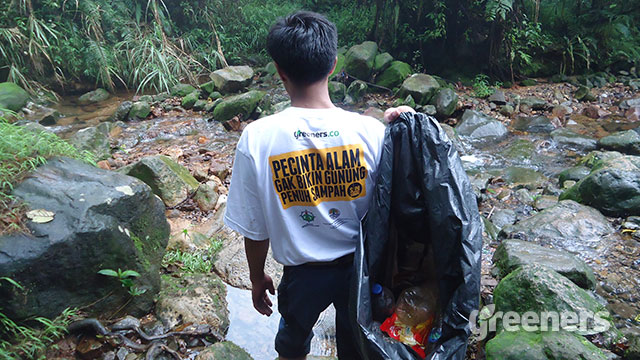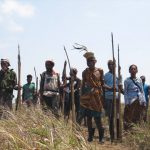Jakarta (Greeners) – Ministry of Environment and Forestry (KLHK) with hiking communities, organizations, and associations will set up clean waste procedure guidance for national parks and outside national parks, said an official, in Jakarta, on Wednesday (29/3).
Solihin Sidik of Goods and Packaging sub directorate at the ministry, said that waste have become issues in cities, oceans and mountains. One of the effort to find the solution, said Sidik, was to ensure hikers would not become the main producer of waste in the mountains. Hence, they must be given guidance so as their activities will protect nature and vegetation in the mountains.
“We will push for the guidance as compulsory for hikers, generally, so that hiking will no longer littering. The approach is on how to change their behavior. We are targeting for the guidance to be finalized in 2017,” said Sidik.
READ ALSO: Consumptive Attitude Leads To Increasing Waste Volume
Soma Suparsa, member of Mountain and Jungle Explorer Association (Wanadri), said that the guidance was a little too late but appreciated the initiatives.
“The guidance is necessary. It’s a little too late but it’s better than nothing. We need these guidance especially now we have the initiators,” said Suparsa.
Furthermore, he said the guidance should also served as recommendation for Regional Regulation, Government Regulation and Village Regulation, on mountain tourism. While waiting for government’s regulations, the guidance, he added, can provide the rules of thumbs in hiking for all hikers.
“In my opinion, there are three types of hiking. One, as part of an self education. Second, as part of being grateful and third for research,” he said. “If we have clear purposes then proper attitude will follow suit. This goal, I think, is what is lacking. Nowadays, hiking is mere existence so the behavior is uncontrollable.”
READ ALSO: Plastic Waste Littering Indonesia’s Mountains and National Parks
Bima Saskoundra of Indonesia’s Mountain Guide Association, said reducing waste volume in the mountains can be also be done by restricting hiking activities, such as limited hikers, either from the time range of hiking or from permits issued, to closing the mountains.
“Mount Gede had [limited] the days and numbers of hikers. For daily permit, Mount Gede only issued two days one night stay. The recovery started from January 1st to March 31st. They also will close on August. That means four less months in one year or only eight months in a year to hike,” he said.
Saskoundra said that only Mount Gede which applied such discipline followed by Semeru Mountain. Meanwhile, other mountains have yet to apply the regulation, for instance, Rinjani mountain was still establishing its rules.
“I have yet to see other mountains applying the same discipline,” he added.
Report by Danny Kosasih



















































